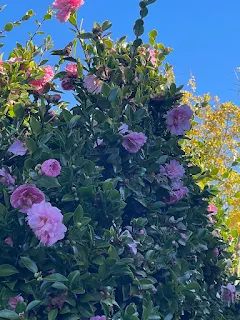Savoring Simple Daily Pleasures
In this life, each of us is both the composer and the instrument of our own symphony. We tune ourselves daily—some days sharp, others flat—but always striving toward harmony. But to truly play our song, to truly live and interact in rhythm with the world, we must ask: What is our source? What is our essence?
Knowing the Source
Your source is not the job title, the degree, or the social role you’ve been assigned. These can be useful costumes, but they aren’t your essence. Your source is that quiet, unshakable presence beneath it all—the part of you that existed before the world told you who you should be. That essence often whispers rather than shouts. It doesn't impose, it invites. It speaks through instinct, curiosity, and a sense of what feels deeply right.
To live from this essence is to reject the rigidity of false identities. It is to drop the mask of ideology when it begins to constrict rather than expand. When we cling too tightly to identities—political, cultural, professional—we become echoes rather than instruments. The music we play becomes someone else's composition.
The Symphony of Interaction
We don’t exist in a vacuum. We’re part of an orchestra. And just as instruments must tune not only to themselves but to each other, we must learn how to resonate in harmony with those around us. This doesn’t mean conformity. Harmony is not sameness. It’s about being in tune—holding our unique note while listening deeply to the music others are playing.
Compassion, clarity, presence—these are the keys to playing well with others. It's how we turn dissonance into dialogue, how we recognize that the person in front of us is also a composition in progress, trying to tune themselves just like we are.
The Work of Self-Mastery
To play your part well, you must look after all aspects of yourself. A healthy body is not vanity—it’s a vessel. It carries the potential of a sharp, calm mind, and an open heart. Movement, nourishment, rest: these are not separate from spiritual or intellectual growth. They enable it.
But even more, we must cleanse our inner lives. Too often, we carry the past like a bag of broken instruments. Regrets, guilt, unprocessed anger—these are the weight that throw us out of tune. We cannot compose the future while dragging the debris of the past. Self-mastery means having the courage to look at what needs healing, and then doing the slow, honest work to restore yourself.
Life’s True Purpose
What is the purpose of all this tuning, all this refining? It’s simple, yet profound: to pass on the best version of yourself to the next generation. Not perfection—but wisdom. Not certainty—but presence. When you take responsibility for your life and actively refine your instrument, you leave behind a clearer, stronger note in the human song.
Whether you're a parent, a mentor, or simply a being who interacts with others—you influence the next wave. And the greatest legacy is not wealth or accolades, but a life that demonstrates alignment, awareness, and integrity.
So tune up. Tune in. Don’t let someone else write your sheet music. Your symphony is waiting.















0 $type={blogger}